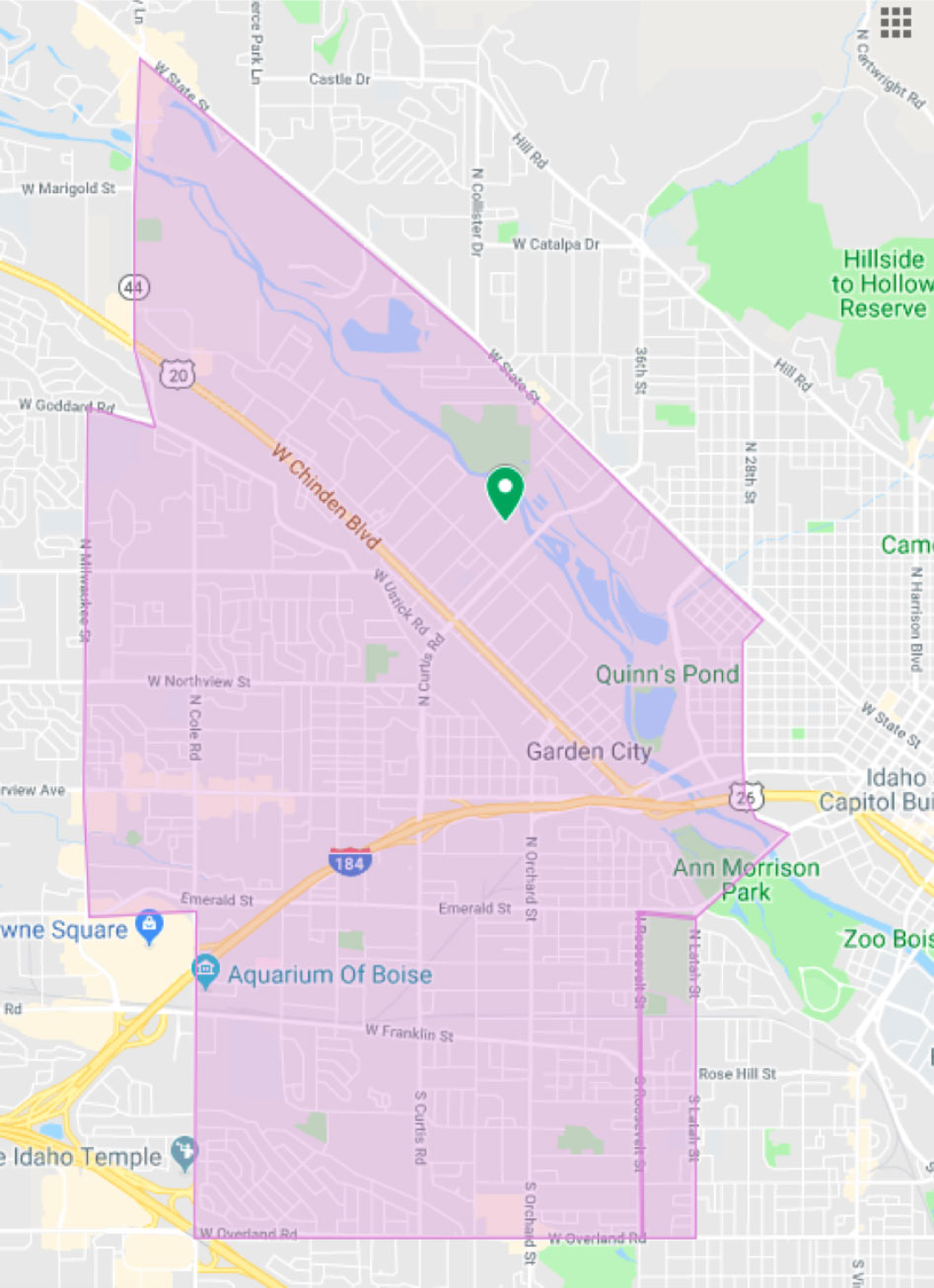Frequently Asked Questions
Can you share your annual calendar?
Please find our school calendar here:
What calendar do you follow?
Our school calendar closely follow the Boise School District with a few minor differences. We have several long weekends, as well as holiday breaks. Our Thanksgiving, Winter, and Spring Breaks all follow the Boise School District.
What is your primary area of attendance?

What are your school hours?
Our school hours are 9am to 3:30pm, Monday through Friday. We believe providing time and space for teacher professional development and collaboration is critical to the success of Future, which is why there is at least 1 additional non-school day each month.
What curriculum do you use?
We believe young people are the future leaders of our local and global communities. At Future, we are committed to affirming each child and providing a safe, joyful learning community. In partnership with families, we want to nurture each child to be confident in their leadership and ability to collaborate with others.
LITERACY: We have foundExpeditionary Learning to offer one of the most holistic and rigorous curricula; it also nicely integrates with project-based learning. We believe a strong foundation (and love for!) reading, writing, and communicating thoughts and opinions is critical. Engineers use istation daily to learn and practice their literacy skills.
MATH: A combination of Eureka Math, DMTI, and CGI. These frameworks allow our teachers to promote critical thinking while also providing a strong foundation of mathematical thinking and problem-solving. Engineers use istation daily to learn and practice their math skills.
QUEST: This is our project-based learning block where we integrate science, technology, engineering, and math domains across all content areas. We are using resources from a variety of places to develop this curriculum.
COMMUNITY: We incorporate the domains of identity, justice, action, and diversity across all content areas and projects, believing that a deep understanding of these domains will equip children to be strong, equitable leaders.
COMPUTER SCIENCE: Engineers use Code.org to focus on learning and building the computer science skills that will assist them in becoming engineers of the future by solving problems, recognizing patterns, and creating step-by-step instructions.
MOVEMENT: We develop more physically literate engineers by both teaching movement like any skill and inspiring confidence and motivation for our
engineers to be active for life.CREATIVE ARTS: We facilitate learning across all content areas by incorporating art and music when possible.
How do you approach discipline?
Our philosophy is rooted in a restorative justice framework. We prioritize helping kids identify harm done and the impact it caused to others, followed by assisting them find a way to “restore” or fix the harm done. We have found this positive and restorative framework to yield stronger critical thinking skills and stronger school communities, versus a punitive, or consequence-based, approach.
What do you mean by "engineers of the future" and "engineers of community"?
We stand committed to ensuring all children at Future are equipped with the academic skills and mindsets to be successful in our rapidly changing economy and future job market. We believe every child deserves the academic foundation to have access and opportunity for the future of their choice. We call our students “engineers” and “changemakers” versus “students”. We believe this instills the mindset, identity, and the values for children to believe they are capable and equipped to lead and exceed in the world.
We believe young people are the future leaders of our local and global communities. At Future, we are committed to affirming each child and providing a safe, joyful learning community. In partnership with families, we want to nurture each child to be confident in their leadership and ability to collaborate with others. We incorporate the domains of identity, justice, action, and diversity across our content areas and projects, believing that a deep understanding of these domains will equip children to be strong, equitable leaders.
What is your homework philosophy?
There is overwhelming evidence that traditional “homework” at the elementary school level is not predictive of future academic success, and in many cases, can cause children to develop negative mindsets towards school. However, we deeply value families reading and communicating together and encourage and ask families that children are reading outside of school. The research shifts as students enter upper grades. Our approach at Future allows for scaffolded assignments in our 4th – 6th grades that help promote study and organizational skills, as well as content based homework that supports daily learning. There are also situations in which children are asked to complete work at home that was not completed in class.
What does technology usage look like?
We believe children should interact with technology when used in a meaningful way and only if it deepens their learning. Children will use a variety of materials to build robots, learn computer programming, and help develop solutions to the problems they see in the world around them, like this.
Do you have special area teachers (i.e. art, music, p.e.)?
Our approach is to incorporate movement, art, and computer science into our projects. All Engineers participate several times per week in CompSci, Art and Movement. Our teachers partner with volunteers and community partners to offer additional special area activities to our Engineers. As our school grows throughout the years, we anticipate offering more components to our overall program.
We also have full use of the NBA-sized gym at the Boys & Girls Club and the Garden City Park located at our campus. Every child will have at least three free-play times throughout the day, including two recesses and an extended lunch time. Our academic program incorporates flexible seating and movement throughout the day.
Do you offer language immersion?
We believe language exposure helps deepen global awareness, critical thinking, and empathy for others. As we grow our program, we anticipate greater capacity to offer more robust language opportunities.
What is the engineer supply list?
What are your class sizes and engineer/teacher ratio?
There are 28-32 engineers per classroom. Each class is led by a certified teacher. Each grade has 1-3 instructional assistants. We prioritize small group, lab-based learning and have additional staff that support students during math and literacy blocks inside and outside the class room. This can mitigate against challenges of larger class sizes.
Our classrooms have about 25-30% more square footage than standard traditional district rooms in Idaho. Students also have opportunities for one-on-one coaching meetings between engineers and a mentor adult (teacher, instructional assistant, or other) combined with our restorative justice approach will help to create strong peer-to-peer and adult-to-engineer relationships in each classroom.
What does assessment look like?
As a public school, we are held to the same accountability and testing measures as any other public school. Our engineers will participate in all Idaho State Assessments, such as the IRI and ISAT. We will also use the NWEA MAP measure as we believe it provides a more rigorous comparison point for engineer growth and achievement on a national level. We believe assessment should be limited and only used when there are clear and meaningful purposes.
How do you accommodate for Special Education?
At FUTURE we believe that ALL means ALL. The Diverse Learner team provides services to school age engineers with disabilities. We believe every Engineer is a diverse learner and commit to meeting each child where they are at.
We have a Director of Special Education, multiple case managers, and a 504 coordinator. Additionally, we have an Engineer support team that includes an Occupational Therapist, a Speech and Language Therapist, Interventionist Specialists, and Special Education Paraprofessionals.
If you believe your child should be evaluated and receive special education services, either you as the parent/legal guardian, or our school district (Future), can begin the referral process for special education. You can do so by contacting your child’s teacher, one of our school Co-Directors, or the Director of Diverse Learning.
Once a child is suspected as having a disability, a team is created to determine if eligibility requirements are met for school based services. The team consists of the child’s parent/legal guardians, the child’s regular education teacher(s), a diverse learning educator, and the principal.
A child might qualify under 13 eligibility categories and may be entitled to FAPE (free and public education) in the LRE (least restrictive environment).
We look forward to partnering with families to learn how we can best support your child. Our philosophy is “child-first” and believe that our decisions and approach to special education should always have the best interest of the child at the core.
You can access your procedural safeguard rights in Idaho as a parent and/or guardian here.
Do you have detailed volunteer options?
Yes! Please reach out to your teachers for more information.
Or learn more about FORCE, our Family Volunteer Group, here:
What are your requirements for parent and family engagement?
We recognize the unique makeup and structure of each family and believe that parent and family engagement will look different for all. We honor and hold deep value for the home knowledge each child brings, believing that parents and families hold the greatest influence on our young people. While we have an open-door policy and welcome family volunteers, we recognize that not every family has this capacity. For some families, this may mean everything from volunteering in a classroom, being a part of our Family Volunteer Group, to making sure their child arrives to school each day.
What are the before/after-school options for my child(ren)?
The Boys & Girls Club offers before and after-school programming, as well as an affordable summer option.
What options are there for transportation?
We offer free transportation within our attendance zone. For families living outside of our attendance zone, children may still take the bus if they can be transported to the nearest available bus stop. Please visit our transportation page for more information:
What is your meal program?
We commit to offering fresh, healthy meals and will address and accommodate any allergy concerns or needs. Please visit our meal page for more information:

